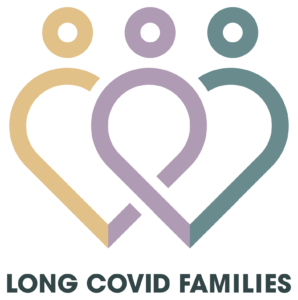This policy memo, submitted by Long Covid Families to congressional offices in July 2025, outlines federal recommendations to strengthen care, education, and research systems for children living with Long COVID. We’re sharing it here so families, clinicians, and advocates can see what’s being proposed and understand how these priorities connect to our ongoing work in Washington.
Overview
Children with Long COVID are falling through the cracks of existing systems. Families are struggling to access care, schools are not equipped to support affected students, and services are often fragmented or unavailable. Without targeted action, these challenges will continue to grow—impacting education, workforce participation, and healthcare costs. Focused federal investment now can strengthen local systems, improve outcomes for children, and reduce long-term spending across education, disability, and healthcare programs. These investments also provide critical support for families managing the ongoing impacts of pediatric Long COVID.
Advance Pediatric Research
Pediatric Long COVID presents with complex, multi-system and multi-symptom effects that require a broad research response. While an important NIH-funded observational study through RECOVER is underway and pediatric clinical trials are in early stages, these efforts are just the beginning. Additional research is needed to understand disease mechanisms, develop diagnostic tools, and identify effective treatments tailored to children. More clinical trials will be needed to meet the range of pediatric needs. Early investment in pediatric-specific research can reduce long-term costs to education, disability, and healthcare systems.
- Study Pediatric Disease Mechanisms: Fund research to understand how Long COVID develops in children, including immune, neurological, and other biological pathways.
- Support Diagnostic Tool Development: Invest in applied studies to identify and validate biological markers that could lead to future diagnostic tools for children with Long COVID.
- Fund Pediatric Treatment Trials: Prioritize clinical trials tailored to pediatric populations, recognizing their distinct symptoms and treatment responses.
Improve Access to Pediatric Medical Care
Immediate Actions:
- Fund Local Access Points: Create grants to enable urgent care centers, walk-in clinics, and pediatric practices to screen and refer children with Long COVID.
- Expand Rural Access: Fund mobile clinics and telehealth programs to increase access to Long COVID care for children in underserved and remote areas.
- Support School-Based and Community Health Centers: Increase funding so these sites can evaluate, monitor, and provide follow-up care for children with Long COVID.
Structural Changes:
- Train Pediatric Providers: Expand training programs to equip more providers to recognize and treat Long COVID in children.
- Support Interstate Licensure: Encourage the creation of an interstate compact, modeled on frameworks like PSYPACT, to allow clinicians to provide care across state lines for children with Long COVID.
- Foster Public–Private Collaboration: Support coordination among hospitals, nonprofits, and community health providers to improve referrals, reduce fragmentation, and ensure families can access streamlined, comprehensive care.
Strengthen Family Stability
Long COVID affects not only children but their entire families. Supporting family stability helps preserve caregiver workforce participation and child well-being.
- Expand access to pediatric mental health services that are equipped to address Long COVID. Many common symptoms, such as anxiety, depression, and cognitive changes, are linked to underlying disease mechanisms, not just psychosocial stress.
- Address Caregiver Strain and Economic Impact: Fund studies and pilot programs to examine how pediatric Long COVID affects caregiver employment, income, and mental health. Test support models already used in other pediatric conditions, such as peer-led caregiver navigation and community health worker programs for families managing asthma, diabetes, autism, or rare diseases, to evaluate how similar approaches could reduce stress, improve care coordination, and support affected families.
Support Students with Long COVID
Chronic absenteeism is a growing crisis, and Long COVID is a key contributing factor. Schools need support to identify and assist students affected by this complex condition.
- Research Long COVID’s Impact on Learning: Fund studies to assess how Long COVID affects stamina, attention, memory, cognition, and academic progress, and use findings to inform development of educational supports.
- Issue Federal Guidance for Schools: Provide clear tools and recommendations to help schools identify and accommodate students with Long COVID and determine appropriate supports.
- Allow public health departments to apply for federal grants to help school districts and local health systems coordinate data sharing, staff training, and family outreach. These efforts would strengthen local responses to a chronic illness that contributes to long-term symptoms and chronic absenteeism in children.
- Expand School Health Supports: Increase funding for school-based staff or programs that help families navigate 504 and IEP processes, track health-related absences, and connect students to needed services.
- Fund research into sustainable instructional models for children with Long COVID who cannot consistently attend in-person or virtual school.
- Issue federal guidance to school districts reminding them of their legal obligations under Section 504 and IDEA to provide appropriate accommodations and refrain from penalizing families for absences related to chronic illness.




